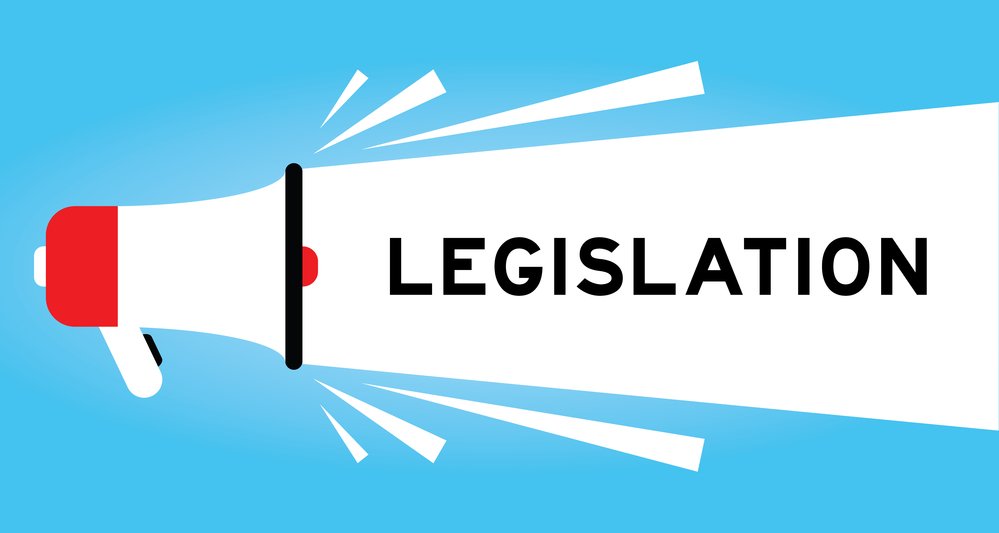“Members of Congress were deliberately misled by years of falsified data that has been thoroughly debunked.” – Patrick Kilbride, Policy Fellow, CAP
 On Thursday morning, the full U.S. Senate Judiciary Committee will convene an executive business meeting to consider several pieces of proposed legislation aimed largely at regulating patent-related activities in the pharmaceutical sector. Although one proposed bill would call for a study into the role of intermediaries in the pharmaceutical supply chain, the remaining drafts are meant to address perceived issues related to drug patents, many of which have been made more menacing by data reports that have been refuted by U.S. government sources.
On Thursday morning, the full U.S. Senate Judiciary Committee will convene an executive business meeting to consider several pieces of proposed legislation aimed largely at regulating patent-related activities in the pharmaceutical sector. Although one proposed bill would call for a study into the role of intermediaries in the pharmaceutical supply chain, the remaining drafts are meant to address perceived issues related to drug patents, many of which have been made more menacing by data reports that have been refuted by U.S. government sources.
Several of these bills were called into question by the free market policy institute Center for American Principles (CAP), which publicly urged senators considering these bills to reject those that have been advanced due to faulty data on the drug market. “Moved by allegations of ‘evergreening’ and ‘product hopping’ abuses, Members of Congress were deliberately misled by years of falsified data that has been thoroughly debunked by none other than the subject matter experts at the U.S. Patent & Trademark Office,” said Patrick Kilbride, Policy Fellow at CAP, in a statement. The bills to be considered tomorrow include:
S. 527, Prescription Pricing for the People Act of 2025
Introduced on February 11 by Sen. Chuck Grassley (R-IA), Chair of the Senate Judiciary Committee, with a bipartisan coalition of 10 original co-sponsors, the Prescription Pricing for the People Act would direct the Federal Trade Commission (FTC) to complete a study into various business practices of pharmacy benefit managers (PBMs), which are responsible for managing prescription drug benefits under large payers like health insurers and major employers, that would be delivered to the House and Senate Judiciary Committees. An earlier version of the Prescription Pricing for the People Act was passed by the Senate Judiciary Committee in February 2023, although the bill failed to progress further.
The FTC report directed by this bill would address, at a minimum, whether PBMs charge payers a higher price than the pharmacy reimbursement rate; whether PBMs steer patients for competitive advantage to any pharmacy; and whether PBMs use formulary designs to manipulate drug market share. The report would also cover observations on competition in the healthcare supply chain, benefits and risks of working with PBMs, legal or regulatory obstacles preventing the FTC from enforcing antitrust and consumer protection laws in the pharmaceutical supply chain, and similar obstacles that contribute to the cost of prescription drugs. As well, the report would provide conclusions from the FTC’s November 2017 “Understanding Competition in Prescription Drug Markets” roundtable, as well as specific actions the agency intends to take based on those conclusions, and policy recommendations to improve transparency, prevent anticompetitive behavior and ensure consumer benefits from mergers in the pharmaceutical industry.
Finally, this bill would authorize a separate report that details the number and nature of complaints of anticompetitive behavior by a sole-source drug manufacturer, the FTC’s ability to bring enforcement actions against such manufacturers, and policy recommendations to strengthen enforcement actions.
S.1040, A Bill to Amend the FTC Act to Prohibit Product Hopping
Although S.1040 was introduced on March 13 by Sens. John Cornyn (R-TX), Richard Blumenthal (D-CT), Dick Durbin (D-IL) and Chuck Grassley, Congress.gov has not received any text for this bill as of this writing. Product hopping is an allegedly widespread business practice in the pharmaceutical industry by which companies extend the exclusivity of drugs beyond their patent exclusivity period by obtaining market approvals for slight reformulations of those drugs through the U.S. Food & Drug Administration (FDA). In 2019, Cornyn and Blumenthal co-sponsored the Affordable Prescriptions for Patients (APP) Act, which would have established product hopping as an anticompetitive practice in Title 15 of U.S. Code, where the Federal Trade Commission Act is codified. S.1040 may likely feature many of the same provisions of the APP Act, including the FTC’s ability to rebut evidence of consumer benefits provided by pharmaceutical companies.
S.1041, A Bill to Amend U.S.C. Title 35 to Address Infringements of Patents Claiming Biological Products
S.1041 was introduced on the same date and by the same group of Senators as S.1040, and its text also has not been received by Congress.gov as of this writing. Previous bills targeting patents for biologics have tried to encourage terminal disclaimers and create obviousness presumptions for biological patents covering slight reformulations or new forms of delivery for prior art drugs.
S.1097, Interagency Patent Coordination and Improvement Act
Like S.1040 and S.1041, the text for S.1097, introduced by Sen. Durbin with co-sponsors Sens. Grassley, Thom Tillis (R-NC), Chris Coons (D-DE) and Peter Welch (D-VT), is not yet available on Congress.gov. This bill would create a task force to improve communications between the FDA and the USPTO regarding pharmaceutical patents.
S.1095, Stop STALLING Act
Introduced on April 3 by Sens. Amy Klobuchar (D-MN) with co-sponsors Ted Cruz (R-TX), Cory Booker (D-NJ), Grassley, Durbin, Blumenthal and Welch, the Stop Significant and Time-wasting Abuse Limiting Legitimate Innovation of New Generics (Stop STALLING) Act would authorize the FTC to bring enforcement actions against pharmaceutical companies that file sham citizen petitions with the FDA to delay the approval of generics and biosimilars.
S.1096, Preserve Access to Affordable Generics and Biosimilars Act
Introduced on April 3 by Senator Klobuchar with a bipartisan coalition of eight original co-sponsors, the Preserve Access to Affordable Generics and Biosimilars Act would prohibit “pay-for-delay” deals that delay market access for generics, biosimilars and interchangeable biologics. An earlier version of this bill would have given the FTC authority to initiate enforcement proceedings against any parties resolving patent infringement claims in connection with the sale of a drug or biological product.
The Council for Innovation Promotion (C4IP) published a letter Wednesday expressing “serious concerns” about four of the bills (S.1040, S.1041, S.1097 and S.1096). “While well-intentioned, each of these proposals risks weakening the predictability, reliability, and effectiveness of the U.S. patent system,” said the letter, adding that the S.1040 and S.1041 “rely on widely debunked misconceptions about how patents function.”
This article was updated after publication to add C4IP’s comments.








